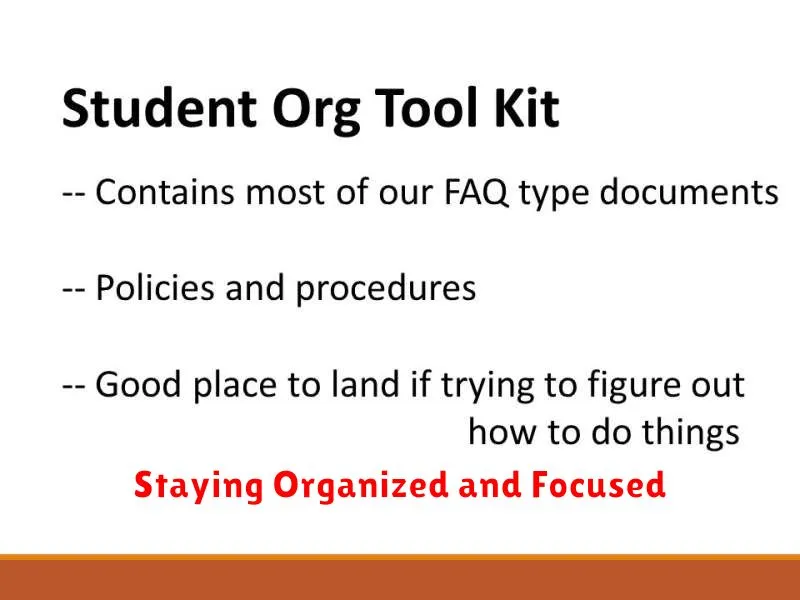Are you daydreaming about dorm rooms, late-night study sessions, and making lifelong friends? The transition from high school to college is a big one, full of excitement and new experiences. But how do you know you’re truly ready for campus life? This article explores 10 key signs that you’re prepared to embrace the challenges and triumphs of the college experience, from academic readiness and independent living skills to social adaptability and personal responsibility. Are you ready to find out if you’re prepared for the next chapter? Read on to discover the 10 signs you’re ready for campus life.
College life represents a significant step towards independence and self-discovery. While the prospect can be daunting, it’s also incredibly rewarding. Determining your readiness involves assessing various aspects of your current life, from your academic preparedness and time management skills to your ability to handle social situations and personal finances. These 10 signs offer valuable insights into whether you’re well-equipped to thrive in the dynamic environment of campus life. Let’s explore the indicators that suggest you’re ready to embark on this exciting journey.
Managing Your Own Schedule
Campus life presents a significant shift in responsibility, especially when it comes to managing your time. No more bells dictating your every move. You’re in charge now.
Successfully navigating university life hinges on your ability to create and maintain a functional schedule. This involves juggling classes, study time, extracurricular activities, social events, and, crucially, personal appointments.
Think about how you currently handle your responsibilities. Are you consistently on time? Do you meet deadlines? Do you procrastinate? Honest self-assessment will reveal if you possess the necessary time management skills, or if this is an area requiring further development before embarking on campus life.
Basic Cooking and Laundry Skills

Cooking and laundry are two essential life skills that become even more crucial when living away from home. Being able to prepare simple meals will save you money and ensure you’re eating healthily. Knowing how to operate a washing machine and dryer, and perhaps even tackling basic mending, will keep you looking presentable and prevent clothing disasters.
Do you know how to cook a few basic dishes? Can you boil an egg, make pasta, or assemble a simple sandwich? These are good starting points. Similarly, are you familiar with sorting laundry, choosing the right detergent, and operating a washing machine and dryer? If not, it’s a good idea to practice before you arrive on campus.
While not requiring gourmet chef skills or professional tailoring abilities, having a basic grasp of these skills will make your transition to campus life smoother and more enjoyable.
Communicating Effectively with Peers
Effective communication is crucial for navigating the complexities of campus life. Successfully interacting with your peers fosters a positive learning environment and builds valuable relationships.
Are you comfortable initiating conversations, actively listening to others’ viewpoints, and expressing your own thoughts and ideas clearly and respectfully? Campus life thrives on collaboration and open dialogue. Participating in group projects, study sessions, and social events requires the ability to communicate your needs and understand the perspectives of others.
Can you navigate disagreements and resolve conflicts constructively? Respectful communication is essential, even when opinions differ. Learning to handle disagreements maturely and find common ground is a valuable skill that extends beyond the classroom.
Budgeting and Financial Planning

Managing your finances is a crucial skill for thriving on campus. Developing a budget is no longer something just for your parents. You will need to track income, expenses, and savings diligently. This includes understanding the cost of tuition, accommodation, textbooks, food, transportation, and personal expenses.
Creating a realistic budget before you arrive on campus can help you avoid financial stress. Consider using budgeting apps or spreadsheets to monitor your spending. Looking for student discounts and exploring scholarship opportunities can also ease your financial burden.
Opening a student checking account and learning to manage it responsibly is also a key aspect of financial preparation. This includes understanding how to use debit cards, online banking, and avoiding overdraft fees. Financial independence goes hand-in-hand with campus life, and being prepared will set you up for success.
Dealing with Homesickness
Starting college often means leaving the familiar comforts of home. It’s perfectly normal to experience homesickness. Don’t ignore these feelings. Acknowledge them and understand that it’s a common part of the transition.
Stay connected with family and friends, but also focus on building new connections on campus. Join clubs, attend orientation events, and strike up conversations with classmates. Staying busy and engaged can help distract you from homesickness.
Create a comfortable and familiar space in your dorm room. Bring photos, favorite blankets, or anything that reminds you of home. This can provide a sense of security and ease the transition.
If homesickness becomes overwhelming, don’t hesitate to seek support. Most universities offer counseling services specifically designed to help students adjust to college life. Talking to a counselor can provide valuable coping strategies and emotional support.
Staying Organized and Focused

College life presents a significant shift in responsibility. Time management becomes crucial. Can you effectively manage your schedule, balancing academics with social life and extracurricular activities? Being prepared is essential. Do you keep track of deadlines and appointments? A planner, whether digital or physical, can be invaluable.
Focus is another key component. The college environment offers many distractions. Can you maintain concentration during lectures and study sessions? Developing strong study habits, such as finding a quiet study space and minimizing interruptions, will be key to your academic success.
Participating in Extracurriculars
Stepping outside your academic comfort zone and exploring extracurricular activities demonstrates a proactive approach to campus life. Active involvement showcases your willingness to engage with the campus community, develop new skills, and broaden your horizons beyond academics.
Joining clubs or organizations related to your interests, whether it’s debating, coding, or playing a musical instrument, allows you to meet like-minded individuals and forge lasting connections. These experiences foster personal growth and offer opportunities to develop leadership and teamwork skills, valuable assets for future endeavors. Participating in extracurriculars demonstrates your ability to manage your time effectively and balance academic commitments with other pursuits.
Time Management Abilities
College life demands effective time management. Juggling classes, assignments, extracurricular activities, and a social life requires a strong ability to prioritize and organize your time.
If you’re already adept at creating schedules, setting deadlines, and sticking to them, you’re well-prepared for the independence of campus life. Do you proactively plan your study sessions? Can you estimate how long a task will take and allocate sufficient time? These skills are crucial for academic success.
Being able to balance your commitments and avoid procrastination demonstrates a readiness for the demands of higher education. This includes knowing when to say “no” to commitments that could overload your schedule and recognizing when to seek help with time management if needed.
Independence in Problem-Solving
College life presents a myriad of new challenges, from navigating complex course schedules to managing finances and personal well-being. Independence in problem-solving is crucial for successfully adapting to this new environment.
Can you handle unexpected situations without immediately seeking assistance? Do you proactively seek solutions to academic, logistical, or interpersonal challenges? These are key indicators of your readiness for campus life. Being resourceful and demonstrating the ability to think critically and find solutions independently are essential skills for thriving in a university setting.
This doesn’t mean you shouldn’t ask for help when needed. Rather, it signifies a proactive approach to problem-solving and a willingness to take initiative. Being comfortable tackling challenges head-on will empower you to navigate the complexities of college life with confidence.
Motivation to Succeed Academically
A key indicator of campus readiness is a strong internal drive to achieve academic success. This isn’t just about wanting good grades; it’s about a genuine interest in learning and expanding your knowledge within your chosen field.
This motivation will be essential for navigating the challenges of college life. Are you prepared to dedicate the necessary time and effort to your studies, even when faced with distractions or setbacks? Do you possess the self-discipline to manage your time effectively and prioritize academic pursuits?
Reflect on your reasons for pursuing higher education. Are they intrinsic, driven by a desire for personal growth and intellectual curiosity? Or are they primarily extrinsic, based on external pressures or expectations? Students with intrinsic motivation tend to be more resilient and successful in the long run.

